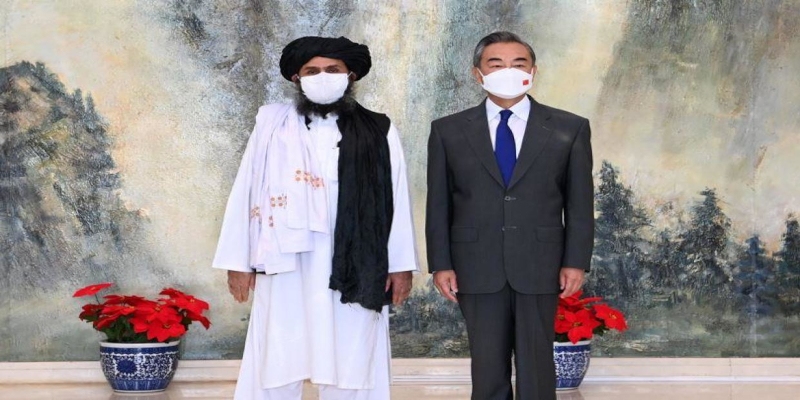Dharamshala, 21st August: As Beijing prepares to welcome an Afghanistan dominated by militant organizations, China is attempting to present the Taliban as an acceptable partner for a country fighting alleged Islamic extremism at home. At home, those familiar with the militant organization’s history of violence and repression of women have slammed state media and diplomatic attempts to whitewash the group’s past and depict it as the “people’s choice.” Beijing has long linked the Taliban to the East Turkestan Islamic Movement, which it blames for the insurgency in East Turkestan.
Now, in the aftermath of the tumultuous withdrawal of US soldiers, China is welcoming the group’s return to power, a strategic U-turn that has many Chinese feeling betrayed. Instability in Afghanistan might have ramifications in Pakistan, where China has invested $50 billion in the Belt and Road Initiative, and push extremism across the border. At a news briefing on Thursday, foreign ministry spokeswoman Hua Chunying sought to downplay the official narrative, pointing to foreign opinion calling the Taliban as “more clear-minded and sensible” than during its first 20 years in control.
She tried to refocus the discourse later Friday on America’s inability to impose democracy on Afghans. “As facts have proven, democracy does not have a set model, just as cold milk does not agree with the Chinese stomach and Americans are not used to using chopsticks,” she remarked.
On Monday, the Communist Party’s organ, the People’s Daily, published a brief video history of the Taliban without addressing its ties to terrorism. According to the 60-second video, the group was founded by “students in refugee camps” during Afghanistan’s civil war and grew with “poor assistance,” adding that it “has been at war with the US for 20 years since the September 11 tragedy.”
The tweet, which was eventually removed, became the fifth most popular trending topic on Weibo after fans questioned why the party publication attempted to whitewash the organization. Some pointed to the country’s harsh history, which included public beheadings, the destruction of the iconic Bamiyan Buddhas, and the exclusion of women from employment and education.
Comments by China’s Foreign Ministry expressing respect for “the Afghan people’s decision and choice,” implying that the Taliban had popular support in the country, sparked similar concerns.
In China, the prospect of Afghan women losing hard-won opportunities to study and work has come at a sensitive time. The arrests of celebrities like Kris Wu on rape charges and an Alibaba Group Holding Ltd executive on a sexual assault charge have sparked a new wave of criticism of the patriarchy.
A Chinese-language newscast on CCTV4, the state broadcaster’s international news channel, painted a more hopeful picture on the same day. While some women expressed concerns about the future, the report stated that the situation in Kabul was “gradually returning to normal” and that the Taliban had made a number of pledges, including respecting women’s rights and enabling them to work and study.







Leave a Reply